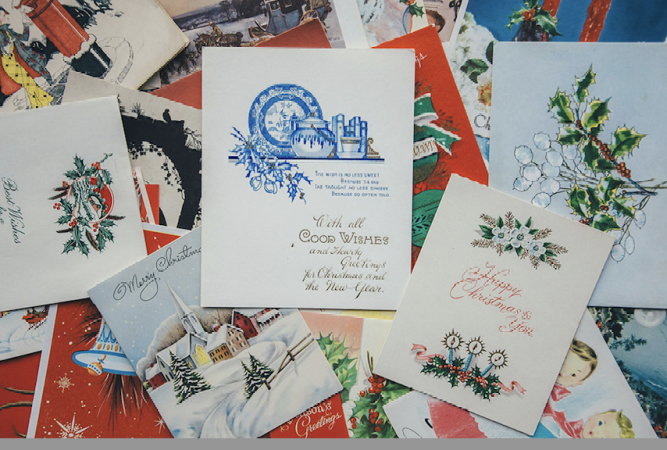Christmas cards tell a story of the deeper dimensions of life
There was a time when I never paid much attention to cards.
Any kind of cards: birthday cards, get well cards, welcome home cards, Christmas cards, whatever. Our community, as a community, sent a card out every year, of course. As a result, so few of us ever sent cards of our own. Instead, the group cards went out to everyone who was ever on a community list of any kind. But not to anyone. In particular to each of us, in other words.
In those days, spending money on Christmas cards — at least for us — was few and far between. It would surely have been seen as a kind of "squandering" to send cards — even by our friends.
The idea of what religious sisters did not have, or should not buy, however, limited the discussion of what is meant by the difference between being "humane" and being human. To be "human" is to be part of a species common to rational development. To be "humane" is to be a higher level of character and sentient being. To be the most humane of the human.
The question is how do we know which one we're talking about. And which ones lift us beyond rational to humane humanity.
The cards, I think, tell a very important story.
No, I didn't mind the absence of all those cards at all. It never crossed my mind what we were missing. We did put all the cards up in the community room, of course. That way the sisters could go from one to another and remember the grandmother who had always come to the summer festival. Or a few of us recognized some of our past students who wanted us to know that they were now graduating from colleges across the country — whether we thought they could or not. They wrote to thank us for our investment in their lives as each of them were now rising in life themselves.
No doubt about it: All of that was important. All of that was good, for us as well as for them. But it brought with it deeper dimensions of life to consider. The fact is that we all know now that all of those cards are not only "nice"; they are a ritual of ongoing humanity in a world that is dispersing itself out of touch everywhere.
For instance, cards enable us all to see how many friends we still hold without really seeing them. What do we remember of them and why? What is it that enables us to see ourselves in them? What kind of seekers are we to remember all these years how we had been helped by one another then and who are still a part of us now — holding us up, coaxing us on, testing our souls — across all the years of time?
The cards make us rethink what that kind of help means. And how it drills down deep as the cards pose questions of our own lives again. Sharply and softly, they say: "What are we ourselves doing for others on this night of the newborn child?"
This year, I noticed as I opened every envelope slowly, softly, that I knew every single person — in some kind of genuine awareness — whose card touched me deeply. Years later.
I guess you call that "wokeness," too. As the years go by, we all wake up. We discover from the past a new kind of consciousness of this present. Of care. Of the wisdom that really does come with age. Of what it means to support the people who need us now — as we go on growing into the fullness of ourselves.
Then, the cards with their etching of moonlight and stars, the manger and the family who took the travelers in, not only tell us the story again, they tell us to remember that we, too, are to be part of it.
The cards, we realize, are calling us again — beyond ancient Rome's reach for money or control; beyond America's pomp or political power-centered commitment to go its own way. Beyond what it means simply to be human.
The cards simply keep coming in, a herald to an eternal tomorrow. They remind us to go on being intent on what we are doing with this part of our lives because of what we learned together in the places and the cards before us and must now distribute our own.
Indeed, may the cards keep coming all our lives, reminding us always to live lives that make every day a Merry Christmas and a Happy New Year. Again. Wherever we are. Always.

